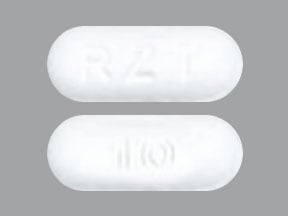
Maxalt Coupons & Savings Card – Discount Prices from $6.00
Brand for: Rizatriptan
My prescription
Edit
10MG, Rizatriptan (9 Tablets)
Select pharmacy

CVS
$19.55
COUPON PRICE
Walmart
$6.00
COUPON PRICE
Walgreens
$12.59
COUPON PRICE
Albertsons
$13.60
COUPON PRICEMaxalt savings card
Show this card to your pharmacist
Walmart
$6.00
BIN
ID
PCN
GRP
019876
LH6383FCCD
CHIPPO
LHX
Powered by
Related triptans prescriptions
More prescriptions for migraine
Related triptans prescriptions
More prescriptions for migraine
Maxalt (Rizatriptan) dosage forms
Dosage Quantity Price from Per unit 10MG 9 Tablets $6.00 $0.67 10MG 1 Tablet $2.89 $2.89 10MG 12 Tablets $7.17 $0.60 10MG 18 Tablets $9.50 $0.53
| Dosage | Quantity | Price from | Per unit |
|---|---|---|---|
| 10MG | 9 Tablets | $6.00 | $0.67 |
| 10MG | 1 Tablet | $2.89 | $2.89 |
| 10MG | 12 Tablets | $7.17 | $0.60 |
| 10MG | 18 Tablets | $9.50 | $0.53 |
Is Maxalt considered a narcotic?
Maxalt is not considered a narcotic. It is a medication used to treat migraines and belongs to a class of drugs known as triptans.
What does Maxalt do to your body?
Maxalt, which contains the active ingredient rizatriptan, is a medication used to treat migraine headaches. It works by narrowing blood vessels around the brain and reducing substances in the body that can trigger headache pain, nausea, sensitivity to light and sound, and other migraine symptoms. It is most effective when taken at the first sign of a migraine attack. Maxalt does not prevent future migraines or reduce the number of attacks.
Does Maxalt make you sleep?
Maxalt (rizatriptan) is not typically known to cause drowsiness or sleepiness as a common side effect. However, some individuals may experience fatigue or tiredness. If someone notices unusual drowsiness after taking Maxalt, they should consult their healthcare provider for further advice.
What is the success rate of Maxalt?
Maxalt (rizatriptan) is generally considered effective for treating acute migraine attacks. Clinical studies have shown that approximately 60% to 70% of patients experience significant relief from migraine symptoms within two hours of taking Maxalt. However, individual responses can vary, and some patients may not experience the same level of effectiveness. It is important for patients to consult with their healthcare provider to determine the best treatment plan for their specific needs.
Is Maxalt an opioid?
Maxalt is not an opioid. It is a medication used to treat migraines and belongs to a class of drugs known as triptans.
